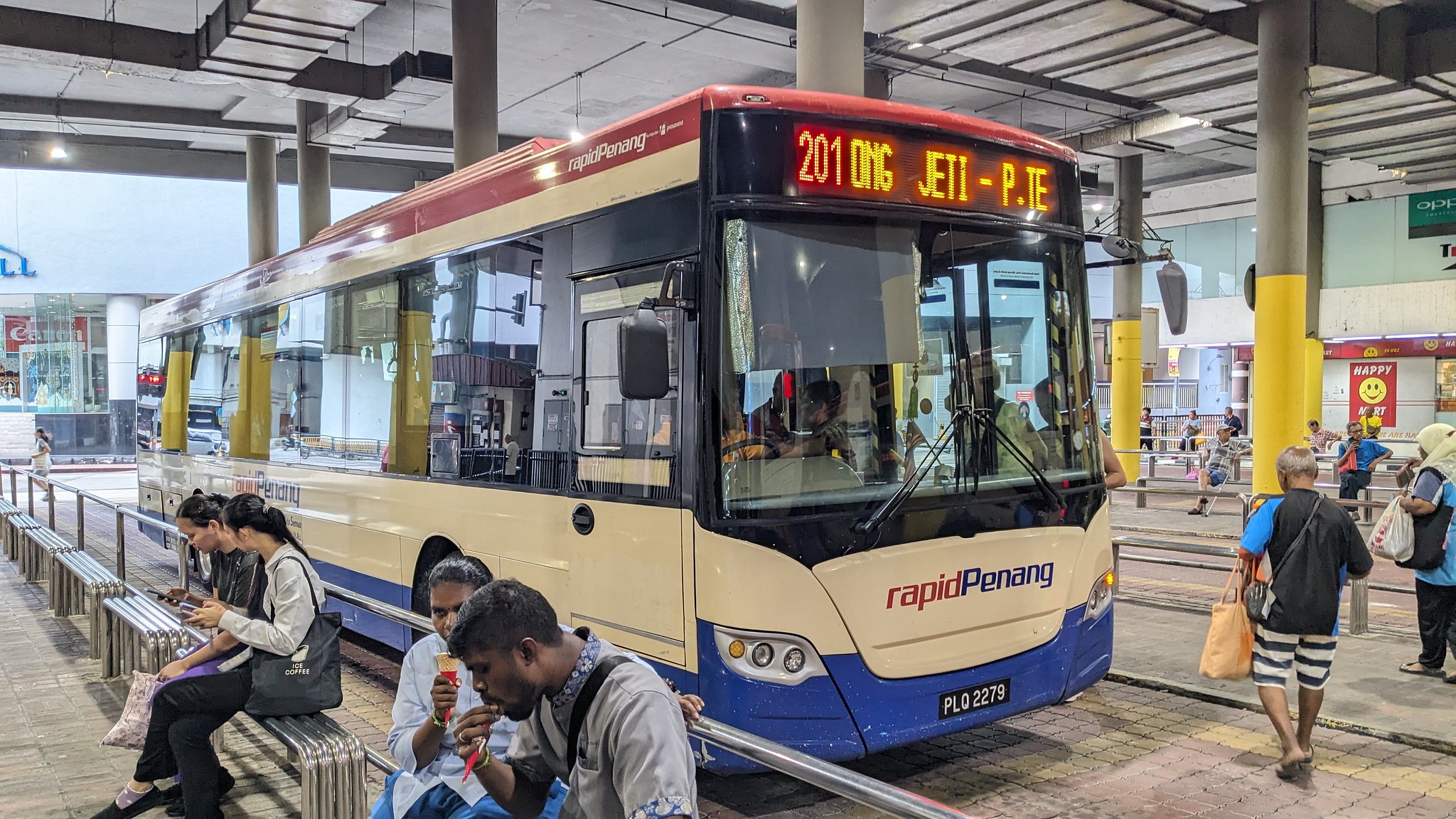A good holiday is never complete without sampling some of the local public transport.
I visited George Town in the state of Penang in north-west Malaysia earlier this year. It doesn’t have any railways (yet) so the workhorse of public transport in the city and on the island is buses.
Public buses on the island are run by the state-owned company RapidPenang. It was formed in 2007 following the collapse of the privately-run model. The State Government invited the Federal Government to take over, using the newly formed Prasarana Malaysia – a government-owned corporation which had just set up the successful RapidKL network in Kuala Lumpur.
In 2023 it saw annual patronage of 14,296,579 across the entire state for a population of 1,740,405. This compares to 109,898,208 in Melbourne for a population of 5,207,145.
Put another way, that is 8.2 bus trips per resident in Penang, compared to 21.1 per resident in Melbourne. Quite a big difference but not an entirely fair comparison.
Using the buses themselves was relatively straightforward. George Town has a central bus terminal under the Komtar Complex and a couple of other major stops like the ferry terminal where more or less all of the routes run.
It reminded me a bit of the Southland Shopping Centre bus interchange in Melbourne. Lots of concrete, semi open-air and under a retail precinct.
Like almost anywhere where there is a concentration of people in Malaysia, there are also some convenience stores and small food stalls right inside the interchange.
Unfortunately, like an increasing number of public transport agencies now, RapidPenang don’t appear to publish any network maps.
But I was quite impressed at the passenger information and live departure boards. While the wayfinding signage to find the right bus bay was very unhelpful, each bay did have a seemingly accurate and pretty clear screen showing the next departures.
I was quite impressed to later find that many other stops had these live departure screens – even well outside the city centre. They even included a live map showing the position of the bus relative to that stop.
Unfortunately not all the stops were this good. Many are still little more than a pole at the side of the road and in poor condition, like this one below that serves one of the major tourist attractions of the island.
The buses themselves were clean and relatively comfortable. They didn’t blast the air conditioning as much as all of the rail operators in this part of the world seem to enjoy doing which meant that I didn’t freeze. Always a nice experience.
One thing they did include was advertising cum passenger information screens, which also seems mandatory in Malaysia and something that is extremely irritating. Although at least these ones didn’t have audio.
In terms of the actual service, I found the network pretty useful. There seem to be a handful of core high-frequency routes that operate 10-20 minute headways along major corridors with a decent span of hours.
Outside of these routes though, most operate on hourly or even less frequent headways. These appear to be more ‘coverage’ routes than usable transport modes.
Bus priority appeared to be non-existent. I didn’t see any dedicated bus lanes, head start lanterns or other measures and buses would frequently bunch and run late in peak times, especially evenings.
Tickets are cheap – especially with the currency conversion – and based on the distance you travel. If you are using a paper ticket, you can purchase these on board. Don’t worry about exact calculations though, drivers will guesstimate and generally charge you the lower fare if they are unsure.
There are also reusable ‘Rapidcards’. Be aware that Rapidcards from Kuala Lumpur will not work in Penang, even though you may be told otherwise (like I was). RapidPenang have their own cards. Unless you are travelling a lot or staying for a long time here, these aren’t really worth purchasing and you can safely stick with paper tickets.
Overall this is a perfectly good transport network. From my multiple trips on board slow and overcrowded buses during peak times, I can definitely see why the city needs a higher capacity public transport system and is now considering rapid transit rail.
One final note. If you are planning to bring your shopping on board from the local fruit shop, you might have to think again…













Leave a Reply